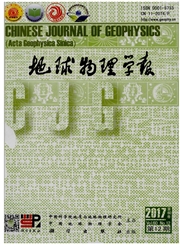

 中文摘要:
中文摘要:
摘要本文利用1994-2003年北京市11个气象台站的7、8月夏季常规地面观测资料,并结合中国科学院大气物理研究所325m高铁塔观测资料,分析了近10年的城市化进程对北京市夏季城市气候造成的影响.结果表明,各气象要素变化都突现了城市化进程的影响:(1)城区相对湿度较郊区明显偏小,呈现一“干岛”特征,且相对湿度呈逐年下降趋势;(2)降水方面,近10年来,北京市的夏季降水量逐年下降非常明显;(3)平均日蒸发量和日照时数城区大于郊区;(4)虽然城区能见度明显小于郊区,但总体来讲,1999年以后,北京地区的能见度趋好;(5)地温同样存在城市热岛现象;(6)北京地区35℃以上高温天数基本呈增多趋势,且城区高温天数明显多于郊区;(7)边界层强逆温的存在有利于城市夏季强热岛的出现.
 英文摘要:
英文摘要:
The summer conventional meteorological data in Beijing over past 10 years are analyzed. The results reveal that the impact of urbanization on the urban climate has become more and more apparent. ( 1 ) Over the past 10 years, the relative humidity decreases year by year and the average value in the urban area is smaller than that in the rural area. (2) The summer precipitation in Beijing decreases gradually in the past 10 years, especially after 1998. (3) The average daily evaporation and the sunshine duration in the urban area are more than those in the rural area. (4) The visibility in the urban area is smaller than that in the rural area, but they all have been becoming more and more better after 1999. (5) The soil temperature also has the characteristics of Urban Heat Island (UHI). (6) The number of days with the air temperature higher than 35 ℃ increases year by year. (7) Combined with the observational data from the 325m high tower in IAP, the results also show that the inversion in the urban boundary layer is very favorable to the formation of the strong summer UHI.
 同期刊论文项目
同期刊论文项目
 同项目期刊论文
同项目期刊论文
 期刊信息
期刊信息
